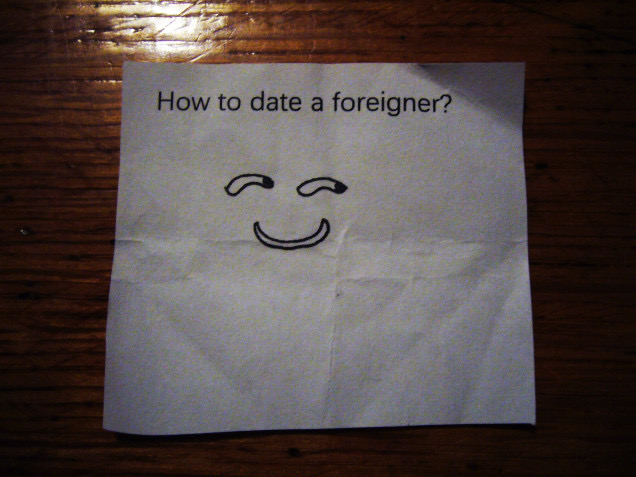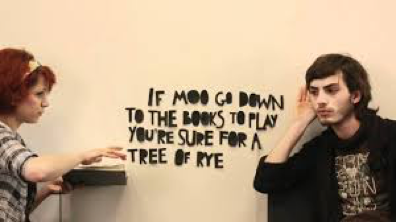Chinese Whispers Regular readers will recall that I often return from China with thoughts, on voting (see Brexit, pursued by a bear), the Rape of Nanjing (The fish that is black and Notes from Nanjing), insect bites (Bite me), asking and answering questions, both in interviews (No means no) and when drawn from the Embarrassing Questions Box (Please use power wisely, Shake it all about and Open the box) and salmon-skin suits (A small, mysterious corpus). This year (and what a year it has been!), it has taken me rather longer to process my thoughts. Of course, being in any city a few weeks before the G20 carnival comes to town would be interesting. Every journey that involved actually leaving one’s hotel room required the approval of a small man in white gloves and a nondescript blue uniform, sitting at a desk with a bunch of other uniformed and remarkably non-threatening people standing around it. His desk was right by the lift, and one was required to provide one’s room number and passport before proceeding to the upper floors. The hotel restaurant was on a mezzanine only accessible from the lobby, which meant we all had to take our passports to breakfast, and then carry the wretched thing with us for the rest of the damn day. I kept mine inside my copy of Night Watch[1] on the grounds that a whole book was easier to keep track of than a skinny little passport, which meant that like a teenager with a spot, I was constantly running my fingers over it to check that nothing had changed. Hangzhou was looking its best, including the twin globe-shaped hotels, one intended to resemble the moon and therefore lit up with white lights, and the other the sun, lit up with yellow ochre (it looked rather like a pumpkin, but a very splendid one). The waterfront, beautiful lakeside parks and (that peculiarly Chinese thing) musical fountains were all poised to welcome President Obama, although I note that the first piece of music chosen for the fountains while we were there was ‘Time To Say Goodbye’.
Hangzhou is a charming place, but the highlights of the trip are always the students. For example, there was a student called Peter, with such a strong perfectionist streak that I had to physically remove his laptop from him to stop him continuing to tinker with his (excellent, finished PS). A quiet, perpetually worried-looking student named Hannah used The Power of Maths to demonstrate that Professor Sir Tim Hunt’s comments about female scientists being ‘distractingly sexy’ were nonsense. She also argued (successfully, in my view) that male scientists who found their attention wandering needed to pull themselves together, in the following deathless sentence: ‘I can concentrate all the way to the end of an experiment, even if there is a boy in the room.’ Another student (rejoicing in the name Jordan at the beginning of the summer school and renamed Bernard by the end)[2] expressed concern about the character count in his PS:
Bernard: You told me to use ‘she’ in all my hypothetical examples, but I need to cut the characters. Can I say ‘he’?
Me: If you want to, Bernard, but it’s becoming common practice in academia to use ‘she’.
Bernard: Why?
Me: Centuries of oppression.
Bernard: I have no further questions.
This year I also threw together a pub quiz on the subject of the United Kingdom in a few hours, learning a great deal about my students in the process. The incredulity in the room on being told that our Commander-in-Chief is a little old lady, for example, was highly educational. I asked them to name their teams after something British, which generated the predictable Big Ben, British Boys and Spice Girls, as well as the frankly baffling Spicy Chicken (I’m told this is a terribly funny pun in Mandarin). I grouped the questions into rounds, of course, including one on food that required them to draw a traditional tiered wedding cake (everyone got this one right), asked which food is served sunny side up (‘sunflower seeds?’), and how fish and chips is made. The answer ‘boiled and then set on fire’ received no marks, whereas ‘plunged into boiling oil’ got an extra mark for making it sound like an answer from the previous round on medieval history. Unsurprisingly, their knowledge of British history was scanty at best; the question ‘Name the two sides in the Wars of the Roses’ was answered correctly by one team only (the only team with a PPE student in it), although I also gave a mark to Spicy Chicken who happened to guess ‘red and white’. ‘When was the Civil War?’ drew answers from across the centuries, including one team who thought it was in the 1980s; and the question ‘How did Charles I die?’ was answered tersely by the team that went on to win with the grim little sentence ‘he have no head’.
The round on international politics asked the students to name the countries with which Britain enjoys the Special Relationship (every team answered ‘China’)[3] and the entente cordiale; here, incorrect answers (nobody got it right) included Sweden (‘cordiale sound a bit Swedish’), Germany (‘because I think entente sounds bad and I know Germany is bad’), Australia, Canada and New Zealand. Another round cherry-picked ten striking pieces of vocabulary from their PS drafts (i.e. at least one student in the room ought to know what at least one of the words meant) and asked them to tell me whether the word was an adjective, verb, noun or preposition and what it meant. This turned out to be a bit like the Uxbridge English Dictionary. The words were as follows: conurbation (‘when someone build a town without ask’), orca (‘orc that is lady orc’), zooming (‘making a zoo’), feudal (‘place where eat food’), Anglophile (‘place to file things’), nevertheless (‘definitely never happen’), kidnap (‘when child is sleepy’), compliment (‘you look nice’), complement (‘you look nice but no-one notice’) and collate (‘you are late because your friend is also late’). Bearing in mind that the only sports that capture the interest in China are badminton and basketball, I also put together a round on sports popular in Britain, including the question that offered them a point for every team they could name from the Six Nations. I was pleased to see everyone score at least three for naming England, Scotland and Wales (two teams, with a certain amount of inevitability, also suggested ‘Northern Ireland’, for which they got half a point: the answer was wrong, but the thinking was good), but the remaining suggestions ranged wildly around the world and included many nations that have no rugby culture whatever (my favourite was ‘Madagascar’). The only question from this round that everyone got completely wrong was ‘What is the profession of Mervyn ‘The King’ King?’ Brilliantly, they all answered that he was the Governor of the Bank of England, forgetting of course that this was a round of questions on sport.[4]
At the end of the (raucous, laughter-filled) quiz, after the points had been totted up and the prizes awarded, with what little voice I had left, I asked some of the students how they had learnt so much about the United Kingdom, given that they don’t study history and receive very little unfiltered news from the outside world. It seems that almost everything starts as a rumour that they might or might not bother (or be able) to verify, remarkably (and depressingly) like Chinese Whispers. The real joy, of course, always comes from letting the students ask questions rather than answering them, and thus the following day we braved the Embarrassing Questions Box.

Eight months later, I still have no idea why this student felt the need to cut their question into the shape of a bus.
In a previous post, I declared my favourite question from the Embarrassing Questions Box to be from a student named Kim (‘Can you tell us everything you know about sex?’; see Open the Box). Chinese Whispers is a game without a winner, and it’s fortunate that I don’t have to pick a favourite here as 2016 was a vintage harvest of Embarrassing Questions, including the following gems: ‘Which area in the UK has the greatest number of handsome boys?’; ‘How do you dry your underwear every day? Because you can’t possibly use dryer every single day, right?’ and ‘How to find a boyfriend in the university?’ I love this last one because it suggests exactly the fruitless wandering I did so much of in my first few weeks at university (I wasn’t in search of a partner, but rather various rooms and noticeboards).

‘How do I date a foreigner? Is it by making my face really sneaky? Is it?’
My favourite question this year, however, was this: ‘What do you think of real love? What is it?’ As I read the question out, I must admit that I wondered how on earth I came to this: standing in an air-conditioned room in Hangzhou, wondering if I was going to be able to make the projector work well enough later on to show them The Man in the White Suit, clutching a cardboard box in one hand, looking forward to my evening bowl of noodles and trying to answer philosophical questions about love. I actually didn’t find the question difficult to answer, but the fact that it was asked at all should give us pause. Two weeks of asking and answering questions all day (including mock Oxbridge interviews; see also No means no) causes both question and answer to feel rather slippery after a while, just as repeating a phrase over and over can both reveal and strip away layers of meaning. I said, ‘real love makes you feel that, even at your worst, you deserve to be loved.’ I’m quite proud of that as a spontaneous explanation; I jotted it down in my notebook immediately afterwards, which is why I’m able to quote it with such confidence. This was the last question and as we broke for dinner, my student Zoe told me that it was her question, and that she liked my answer very much. One shouldn’t have favourites, of course, but Zoe was my favourite this year, partly because she was such a thoughtful young lady: both in the sense of being considerate to other people, and also in the sense of turning things over in her mind constantly. In each interview I did the following day, I finished by asking them Zoe’s question. One of the best answers was, ‘If you don’t know the difference between real love and not-real love, it is not real love.’ (‘That’s a good answer’, I said. The student replied, ‘Yes. I think about that question all day. It stick in my mind’). In the face of huge, Trump-based global-scale nonsense, it’s hard to feel able to exert any kind of influence over events, but it seems to me that anyone who teaches, asks or answers questions has more influence than they realise. The whispers of a good question go on forever.

[1] I took both Night Watch by Terry Pratchett (his finest work, second only to Thud!) and Night Watch by Sarah Waters (her finest work by a mile), for no reason other than it pleased me to do so.
[2] Bernard was concerned that his name might be a little old-fashioned, and when I asked him what other names he liked he said, ‘Jim, or Humphrey.’ Thus did we uncover his love of Yes, Minister.
[3] Enjoys! What was a cosy flirtation is about to becoming a savage buggering.
[4] Mervyn ‘The King’ King is a darts player. Even had the question been ‘Who is the Governor of the Bank of England?’, Mervyn King is still not the correct answer, as Mervyn King the Baron of Lothbury was replaced as Governor of the Bank of England in 2013 by Mark Carney.
